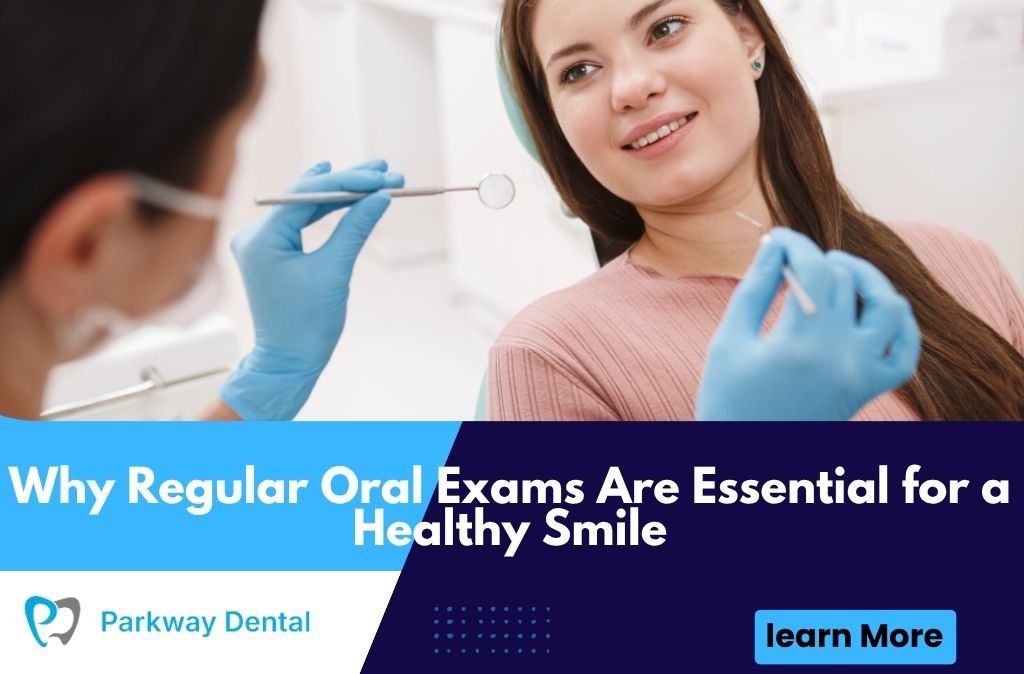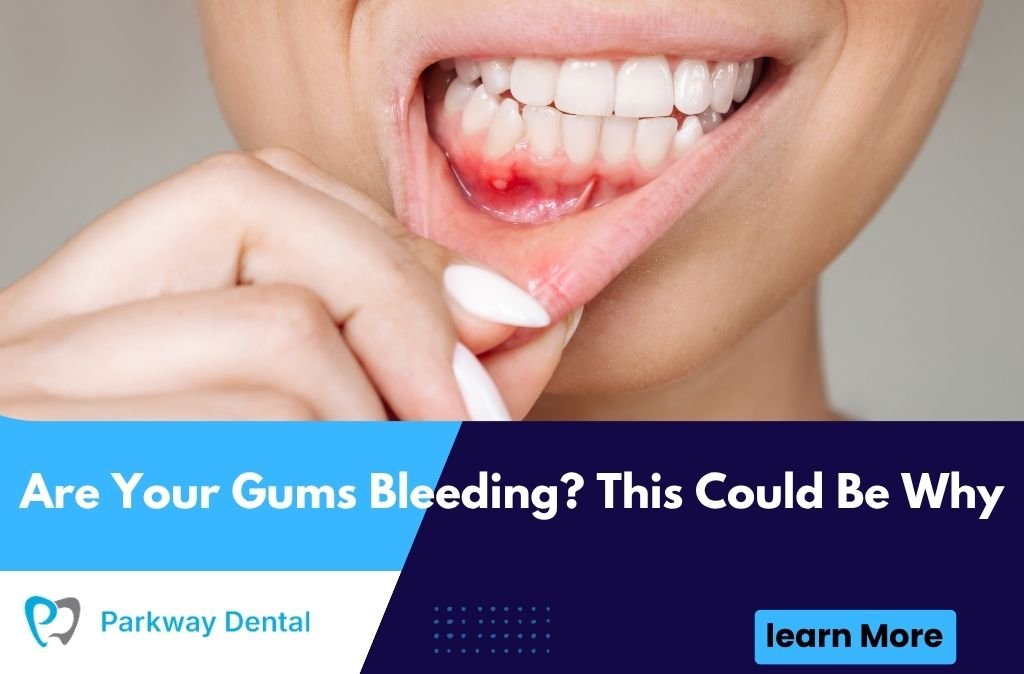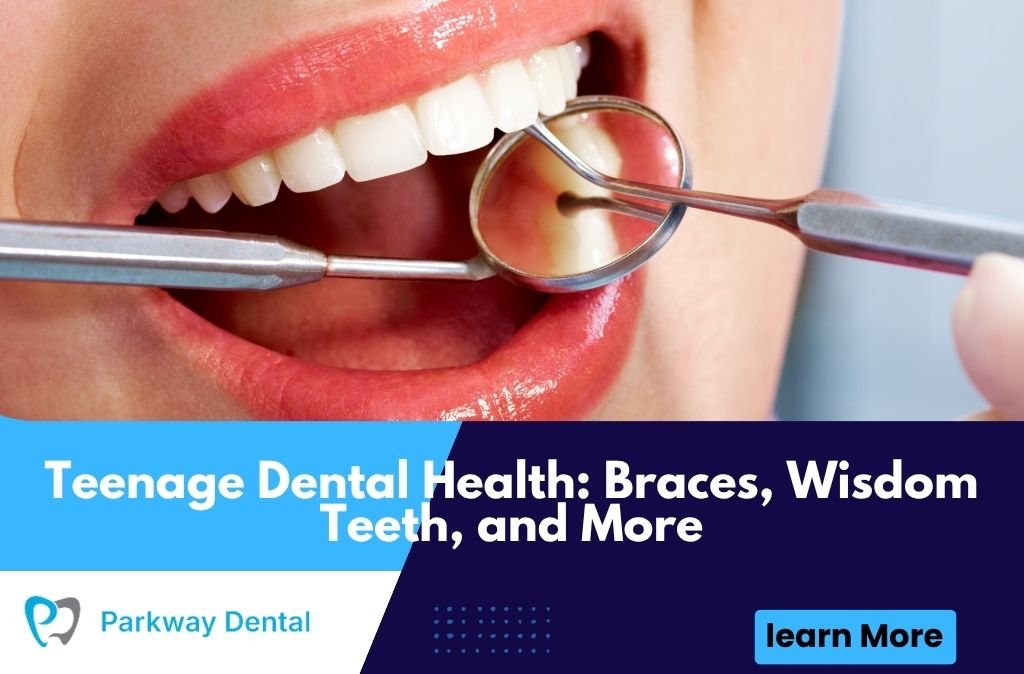Maintaining a healthy smile goes beyond daily brushing and flossing. Regular oral exams are the cornerstone of preventive dental care. These professional checkups help catch early signs of decay, gum disease, and other oral health problems before they escalate—saving you pain, money, and unnecessary treatments.
Key Benefits of Regular Oral Exams
Regular dental exams provide multiple benefits beyond clean teeth. They support long‑term oral health and overall well‑being when performed consistently.
Early Detection of Cavities and Decay
During an oral exam, your dentist uses small tools and X-rays to detect early decay, before it becomes painful or requires a root canal. Addressing cavities early preserves more of your natural tooth and keeps treatment simple.
Prevention of Gum Disease (Periodontal Disease)
Gum disease often begins without symptoms. Regular exams include gum health checks, pocket depth measurements, and preventative cleanings that remove plaque and tartar that cause inflammation and tissue damage.
Oral Cancer Screening and Early Intervention
Dentists screen for oral cancer signs—including sores, leathery patches, or lumps—during routine exams. Early detection significantly improves outcomes and survival rates, making this screening a life-saving service.
The Role of Dental Cleanings in Maintaining Oral Health
Alongside oral exams, professional dental cleanings remove hardened plaque and stains that brushing alone can’t eliminate.
Removing Hard Tartar and Plaque Safely
Even diligent brushing leaves some plaque behind. Dental cleanings use specialized tools to safely remove tartar build-up, which otherwise leads to cavities and bad breath.
Polishing and Fluoride Treatment for Strength
After scaling, dentists polish your teeth to remove surface stains and apply fluoride treatment to strengthen enamel and help prevent future decay.
How Oral Exams Detect Hidden Health Risks
Dental exams uncover more than just oral problems—they can reveal general health concerns too.
Detecting Systemic Issues via Oral Signs
Conditions like diabetes, vitamin deficiencies, or autoimmune disorders can manifest first in your mouth. Dentists recognize patterns—like slow healing, gum inflammation, or white patches—that suggest you consult a physician.
Monitoring Bruxism, TMJ, and Wear Patterns
Regular exams track signs of teeth grinding (bruxism), jaw joint dysfunction, or enamel erosion. Early interventions—like mouthguards or stress reduction—can prevent more serious issues later.
Preventive Advice for Smiling Strong
Oral exams aren’t just diagnostic—they’re also educational. Your dentist, hygienist, or assistant gives you tailored advice.
Personalized Oral Hygiene Tips
Every mouth is different. Professionals may recommend specific toothpaste, introduce tools like interdental brushes, or demonstrate flossing techniques based on your dental anatomy.
Dietary and Lifestyle Recommendations
Sugary drinks, acidic snacks, and tobacco habits all affect your oral health. Your provider may suggest diet tweaks, water intake routines, or habits to avoid enamel damage and gum disease.
Building a Dental Record & Planning Future Care
Over time, regular exams create a reliable history of your oral health journey.
Tracking Progress and Identifying Patterns
Dentists compare X-rays and chart notes over years to monitor bone density, gum health, and cavity trends—helping catch early problems and guiding long-term treatment plans.
Scheduling Timely Treatments Before Problems Escalate
If minor issues appear—like early decay or gum recession—dentists recommend low-cost, less invasive solutions. This planning prevents urgent, costly, or painful treatments later.
Financial Benefits of Staying Preventive with Oral Exams
Regular exams may seem like a recurring cost, but they reduce spending in the long run.
Lower Treatment Costs through Early Intervention
Treating minor issues early (like small cavities or gum changes) is far less expensive than extensive solutions such as crowns, root canals, or periodontal surgery.
Insurance Savings and Maximizing Coverage
Most dental plans fully cover two preventive visits per year. Using these visits strategically ensures you’re making the most of your insurance benefits.
Psychological and Confidence Benefits of a Healthy Smile
Oral health isn’t just physical—it impacts how you feel and how others perceive you.
Improved Self‑Esteem and Social Comfort
Healthy, clean teeth and fresh breath boost smile confidence. Regular exams reduce worry about unexpected oral issues, helping you feel more at ease in social and professional settings.
Head‑to‑Toe Well‑Being from Oral Health
Oral inflammation and infection can affect overall health, contributing to cardiovascular concerns or immune stress. Consistent oral exams help support overall systemic wellness.
How Often Should You Get a Dental Exam?
The ideal frequency of oral health checkups depends on your age, risk factors, and dental history. While twice a year is the general standard, some people may need more frequent monitoring.
Oral Exam Frequency for Adults
Adults with good oral health typically need dental exams every six months. If you’re prone to cavities, have gum disease, or wear restorations (like crowns or implants), your dentist may recommend visits every 3–4 months.
Oral Exam Frequency for Children
Kids should begin exams once the first tooth erupts or by age one. Children benefit from routine dental exams every six months to track development, teach brushing habits, and apply preventive care like fluoride or sealants.
What Happens During a Regular Oral Exam?
Understanding the process removes fear or anxiety. A routine dental exam is usually painless and only takes 30–45 minutes.
Visual and Physical Evaluation
The dentist checks your teeth, gums, tongue, and other tissues for signs of decay, infection, or abnormalities. This includes checking for redness, plaque buildup, and loose teeth.
X-Rays and Imaging
Dental X-rays are done once a year or as needed to identify problems that aren’t visible, such as cavities between teeth, impacted teeth, or bone loss.
Periodontal Evaluation
Your dentist or hygienist will measure gum pocket depth, evaluate gum color, and assess any bleeding to check for signs of periodontal disease.
Differences Between Child and Adult Dental Exams
While exams for both age groups share core steps, dentists use different approaches for children to ease anxiety and promote cooperation.
Child Exams Focus on Education and Growth
Dentists explain tools and procedures in child-friendly language, check for proper eruption patterns, and talk about habits like thumb-sucking or using a pacifier.
Adult Exams Focus on Risk Management
Adult visits involve tracking long-term issues, checking for oral cancer signs, and discussing stress-related concerns like bruxism or dry mouth due to medications.
How Regular Oral Exams Reinforce Good Habits at Home
Routine checkups reinforce the importance of consistent oral hygiene by giving you feedback and motivation.
Professional Feedback on Brushing and Flossing
Your dentist can show areas you’re missing while brushing, recommend toothbrush upgrades, or demonstrate proper flossing to reach back teeth.
Accountability and Positive Reinforcement
Knowing your next visit is coming up helps keep you committed to better oral hygiene at home—improving long-term outcomes and reducing treatment needs.
Conclusion
A clean, confident smile begins with one simple habit—regular oral exams. From spotting early cavities and gum disease to detecting oral cancer and reducing costs, these checkups are key to lifelong dental health. They’re fast, painless, and packed with value.
If you’re due for a checkup, schedule with a trusted Dentist in West Roxbury, MA who prioritizes preventive care, clear communication, and patient comfort. It’s a small investment in your oral health that pays off for a lifetime.
FAQs
How often should I get a dental exam?
Most people need an exam every 6 months. If you have gum disease, braces, or high cavity risk, your dentist may recommend more frequent visits.
Are oral exams covered by insurance?
Yes. Most dental plans cover two preventive visits per year, including exams, X-rays, and cleanings.
Can a dental exam detect oral cancer?
Yes. Your dentist will check your tongue, cheeks, and soft tissues for signs of oral cancer or precancerous lesions during each exam.
What’s the difference between a cleaning and an exam?
A cleaning removes tartar and plaque buildup, while an exam checks for signs of disease, decay, or abnormalities.
Is a dental exam painful?
No. Dental exams are painless and non-invasive. If X-rays or probing is needed, your dentist will explain everything in advance.
Are children supposed to have dental exams?
Absolutely. Children should start dental exams by age one or when the first tooth appears. Regular visits help form healthy habits early.
Can I skip an exam if I have no pain?
No. Many dental issues—like cavities or gum disease—don’t cause pain until they’re advanced. Early detection keeps your treatment simple and less costly.
How long does a typical dental exam take?
Most dental exams take 30 to 45 minutes, depending on whether X-rays or cleanings are included in the same appointment.
What should I do between exams to stay healthy?
Brush twice a day, floss daily, avoid sugar-heavy snacks, and use a fluoride toothpaste. Ask your dentist about personalized care tips at your visit.
How do I find a good dentist near me?
Look for providers with strong reviews, flexible hours, and preventive care focus. If you’re in Massachusetts, consider booking with a Dentist in West Roxbury, MA who offers gentle, comprehensive care.






